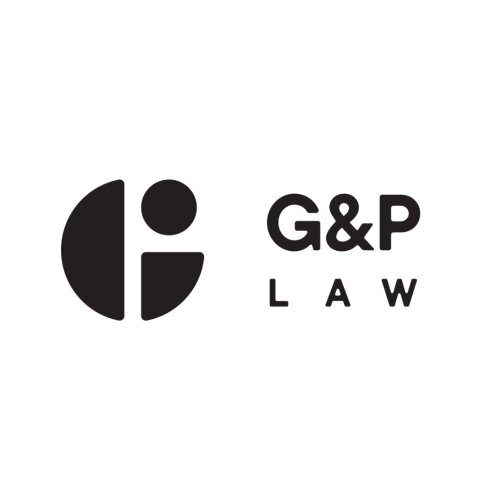Best Corporate Governance Lawyers in Bulgaria
Share your needs with us, get contacted by law firms.
Free. Takes 2 min.
Or refine your search by selecting a city:
List of the best lawyers in Bulgaria
About Corporate Governance Law in Bulgaria
Corporate governance in Bulgaria refers to the systems, processes, and principles that govern the management and control of companies. It ensures that companies are directed and monitored in ways that enhance accountability, transparency, and efficiency while aligning the interests of management, shareholders, employees, and other stakeholders. In Bulgaria, corporate governance is shaped by both national legislation and various codes of best practices. This framework supports sustainable business growth and boosts investor confidence.
Why You May Need a Lawyer
Legal advice is crucial when navigating corporate governance in Bulgaria for several reasons. A lawyer can assist in interpreting and complying with complex laws and regulations, help establish robust governance structures, and manage potential disputes among shareholders or between shareholders and directors. Other common situations requiring legal assistance include restructuring a company, handling mergers or acquisitions, addressing conflicts of interest, implementing internal control mechanisms, and ensuring compliance with reporting obligations. In cases of regulatory investigations or proceedings concerning breaches of corporate governance standards, a qualified legal professional is essential for effective representation and defence.
Local Laws Overview
Bulgaria's corporate governance landscape is governed by several key laws and regulations. The Commercial Act is the main piece of legislation outlining the rules for company formation, management structures, the rights and duties of shareholders and directors, and the processes for company reorganization and dissolution. Publicly listed companies must also comply with regulations set by the Bulgarian Financial Supervision Commission (FSC) and the rules of the Bulgarian Stock Exchange.
The National Code for Corporate Governance, although largely voluntary, establishes guidelines for best practices in board composition, transparency, disclosure, treatment of minority shareholders, and ethical management. Companies that adopt these principles often benefit from increased trust and better relationships with stakeholders. Other relevant laws include the Accountancy Act, Law on Public Offering of Securities, and anti-money laundering regulations, all of which influence governance standards and reporting obligations.
Frequently Asked Questions
What is the primary legislation governing corporate governance in Bulgaria?
The main legislation is the Commercial Act, supplemented by the Law on Public Offering of Securities for public companies and various regulatory directives from the Financial Supervision Commission.
Are Bulgarian companies required to follow a corporate governance code?
Public companies must disclose whether they comply with the National Code for Corporate Governance. While adoption is voluntary, non-compliance must be explained.
What are the responsibilities of a company board in Bulgaria?
The board is responsible for strategic direction, oversight of management, ensuring compliance with laws, approving financial statements, and protecting the interests of shareholders.
Can minority shareholders influence company decisions?
Yes, minority shareholders have certain rights, such as calling general meetings, challenging decisions in court, and receiving detailed information about the company's operations.
How are conflicts of interest managed within Bulgarian companies?
Conflicts of interest must be disclosed to the board and general meeting. Directors with conflicts are required to abstain from related votes and may face liability if rules are breached.
What are the reporting obligations for Bulgarian companies?
Companies must keep accounting books, prepare annual financial statements, and public companies must disclose significant information to regulators and the public.
What are the penalties for non-compliance with corporate governance laws?
Non-compliance can lead to administrative penalties, fines, suspension of trading for listed companies, reputational damage, and even personal liability for directors in severe cases.
Can foreign citizens serve on company boards in Bulgaria?
Yes, foreign individuals can be directors or board members, subject to meeting legal and residency requirements where applicable.
How are general meetings of shareholders conducted?
General meetings are held annually or as needed, with notices and agendas sent to shareholders. Decisions require specific quorums and voting thresholds as stated in the company statutes and law.
What is the process for amending corporate statutes or articles in Bulgaria?
Amendments must be approved by the general meeting of shareholders. The resolution and amended statutes must then be registered with the Commercial Register.
Additional Resources
- Bulgarian Financial Supervision Commission: Regulates capital markets and public companies, ensuring compliance with governance requirements. - Bulgarian Stock Exchange: Oversees listed companies and provides guidance on disclosure and other regulatory requirements. - Registry Agency: Manages the Commercial Register where company statutes and changes are filed. - Institute of Directors in Bulgaria: Offers resources and training on best practices in corporate governance. - Bulgarian Chamber of Commerce and Industry: Provides support and guidance for businesses on compliance and corporate matters.
Next Steps
If you require legal advice or support in the field of corporate governance in Bulgaria, start by defining your specific issue or area of concern. Gather all relevant company documents and correspondence related to your situation. Contact a lawyer or law firm specializing in corporate and commercial law, ensuring they have experience with Bulgarian corporate governance matters. Schedule a consultation to discuss your case, your goals, and potential strategies. Acting early and seeking professional advice will help ensure compliance, minimize risks, and protect your interests within the Bulgarian business environment.
Lawzana helps you find the best lawyers and law firms in Bulgaria through a curated and pre-screened list of qualified legal professionals. Our platform offers rankings and detailed profiles of attorneys and law firms, allowing you to compare based on practice areas, including Corporate Governance, experience, and client feedback.
Each profile includes a description of the firm's areas of practice, client reviews, team members and partners, year of establishment, spoken languages, office locations, contact information, social media presence, and any published articles or resources. Most firms on our platform speak English and are experienced in both local and international legal matters.
Get a quote from top-rated law firms in Bulgaria — quickly, securely, and without unnecessary hassle.
Disclaimer:
The information provided on this page is for general informational purposes only and does not constitute legal advice. While we strive to ensure the accuracy and relevance of the content, legal information may change over time, and interpretations of the law can vary. You should always consult with a qualified legal professional for advice specific to your situation.
We disclaim all liability for actions taken or not taken based on the content of this page. If you believe any information is incorrect or outdated, please contact us, and we will review and update it where appropriate.
Browse corporate governance law firms by city in Bulgaria
Refine your search by selecting a city.

















